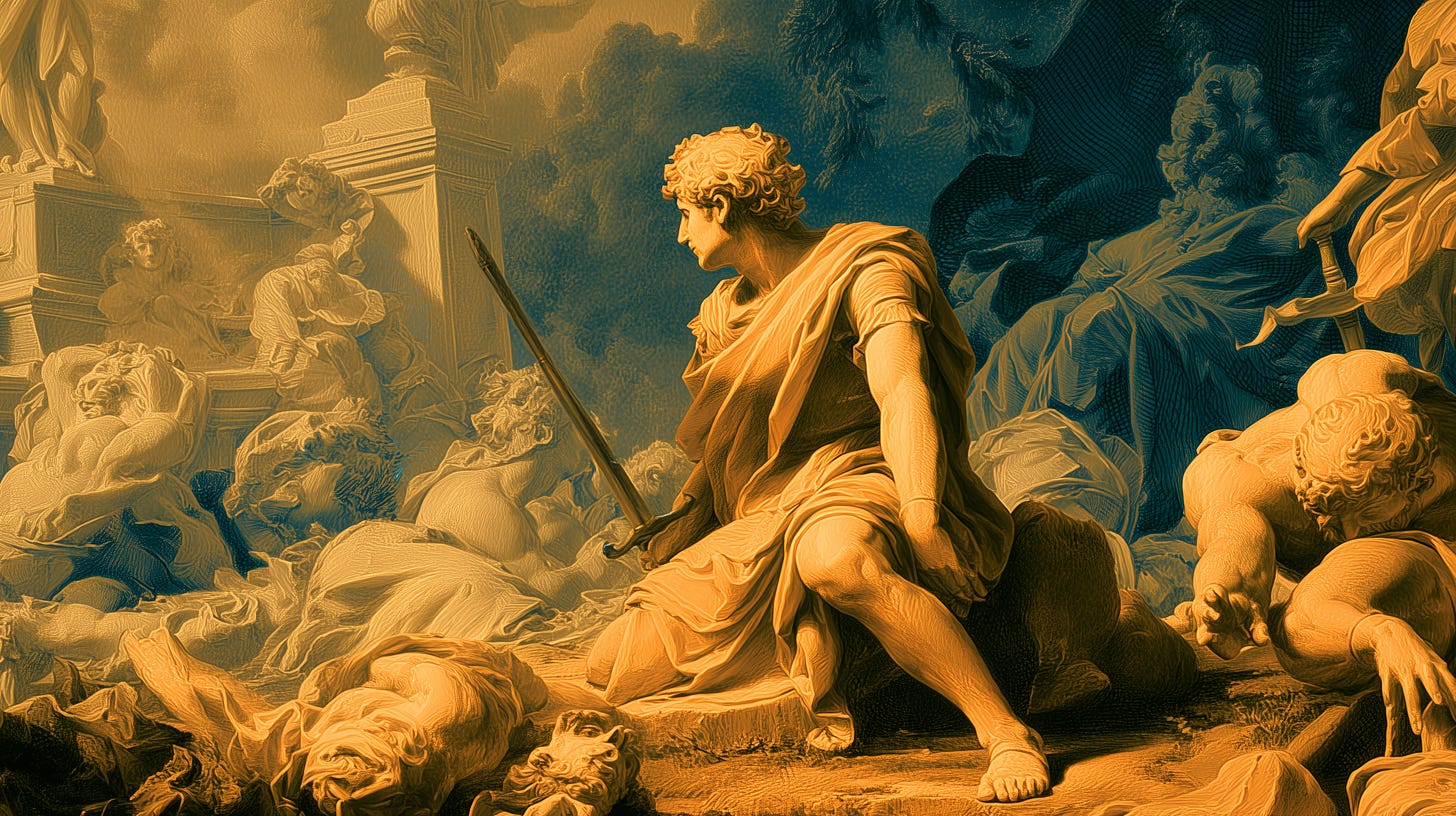Kill Your Heroes
Why idolizing success stories prevents you from creating your own path
I’ve spent $1,603 on books in 2024.
I know the exact number because I tracked every purchase, convinced I was investing in my future. Each book promised the same thing: decode the formula, follow the steps, achieve the dream.
And you know what I got for my $1,603?
Nothing.
I could quote Bezos, recite Jobs, explain Buffett's philosophy. But I was still confused, still waiting for someone else's blueprint to transform my life.
That's when I started questioning the books themselves. The problem wasn't my implementation.
It was the entire premise.
The Museum of Victories
Every business book is seductive. The idea that there's a blueprint somewhere, waiting to be discovered.
Not a single one of these books was written before the success happened.
Think about that. Every framework, every methodology, every "proven system" we study so religiously? They're all just someone looking backward, connecting dots that weren't visible in real time.
What you're reading isn't a collection of formulas.
It's a museum of victories already won.
Everything about your heroes is told in hindsight.
And hindsight doesn't just organize the past. It romanticizes it.
Lucky breaks become "strategic pivots."
Near-failures become "learning moments."
Steve Jobs becomes the visionary who always knew what customers wanted, not the guy who launched the Lisa and Newton.
We're not just copying outdated strategies. We're copying myths.
But here's what changed my perspective on hero worship:
When Elon Musk was trying to build reusable rockets, Neil Armstrong himself testified to Congress that it was impossible.
His childhood hero. The guy who walked on the moon declaring his life's work impossible.
But Elon did something profound. He didn't abandon his respect for Armstrong. He just refused to let Armstrong's limitations become his own.
I remember watching Elon’s reaction in an interview: "Those guys are heroes of mine... I wish they would come visit and see the hard work we're doing."
There was no anger. No dismissal. Just a quiet determination to prove that even heroes can be wrong.
That's what it looks like to kill your hero worship while keeping your respect.
Our reverence becomes our prison.
We let our heroes' limitations become our ceiling.
Vision Liberates You from Heroes
The antidote to hero worship isn't rejecting successful people.
It's having your own vision.
Vision is the antidote to hero worship.
Vision creates the psychological permission to surpass your heroes.
When you're following someone else's blueprint, you're essentially letting them define success for you. Their metrics become your metrics. Their timeline becomes your timeline. Their limitations become your ceiling.
But when you have your own clear vision, the dynamic flips entirely.
Studying successful people becomes strategic rather than imitative.
You're not asking "How can I replicate their journey?" You're asking "What serves my vision?"
Vision becomes your filter.
It gives you permission to prove your heroes wrong when necessary. You take what serves your path and transcend their limitations while respecting their contributions.
Transcend Heroes, Trust Your Perspective
So what's the real play?
Develop a vision first. Then study your heroes strategically, with the understanding that you might need to surpass them.
Four steps: Envision → Question → Select → Transcend.
Envision your destination.
Start with what genuinely inspires you, even if it's broad.
"I want to help people" is perfectly valid.
My vision started simple: people becoming their best selves through learning. That gave me a filter for every book, conversation, and opportunity.
Question everything.
Red flags: The story is too clean. No mention of luck. The struggle sounds noble. The advice claims universal applicability.
When you read that Jobs "always knew" what customers wanted, remember he also created the Newton, Lisa, and Ping.
Select strategically.
Use your vision as a filter.
Ask: Does this advance my specific vision, or am I copying because it sounds impressive?
Your vision gives you permission to ignore 90% of what you read.
Transcend respectfully.
Distinguish between core insights and contextual limitations.
Elon didn't reject Armstrong, he transcended the specific limitation about reusable rockets.
The goal isn't arrogance.
It's taking their best insights and applying them to possibilities they couldn't imagine.




Thanks for another one.
I find your tracking habits impressive. Did you go back or tracked each purchase when you made it?
There's one more thing about heroes. We always find them after, not before they become. But becoming changes you. Especially if it takes years. Yet, we try to distill what they *are*, and what they are doing, not how they were, and what they have done.
Often, it's the "do what I say not what I do(ne)" sort of situation.